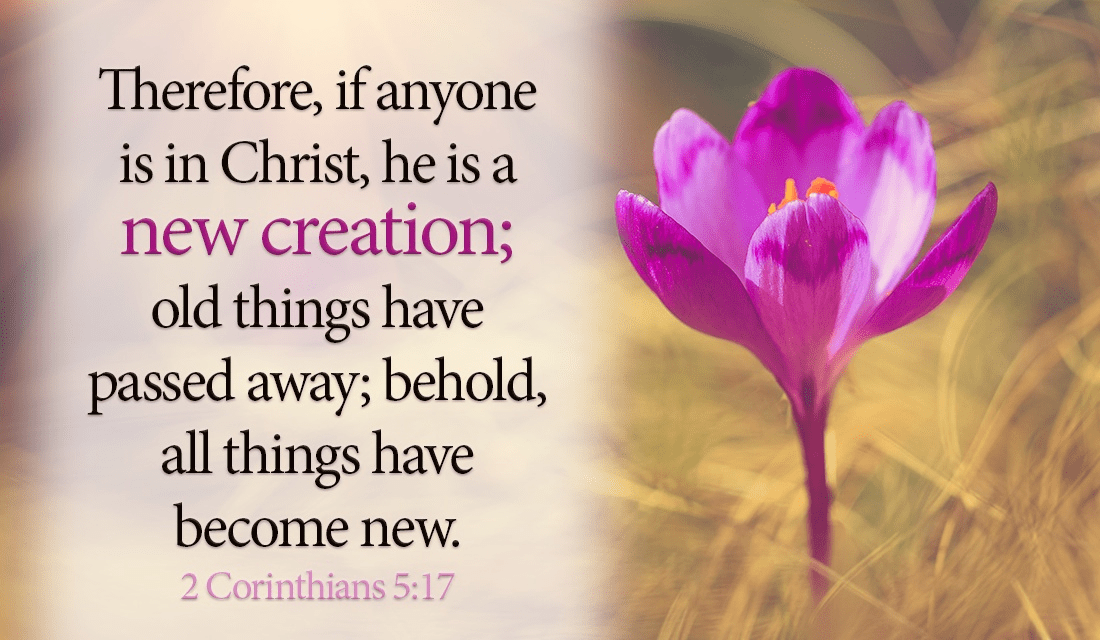Reconciliation in the Bible: It's Meaning & Why We Need It
Share

They hurt you so badly it’s impacted much of your life, so badly you’re not sure you can ever forget, let alone forgive. Yet in your heart you know you’re supposed to forgive them. How is this possible, and why?
Or maybe it’s you who has done the hurting. You’ve righted the wrong as best you could, moved past it, turned your life around, made peace with God — and yet you can’t seem to forgive yourself.
All these things stand in the way of our ultimate peace and wholeness in the Lord: true reconciliation.
The Bible talks a great deal about forgiveness and its ultimate foundation, reconciliation. But what is reconciliation, what does the Bible say we should do about it, why do we need it, and what does it actually look like in real life?
What is reconciliation?
Reconciliation has much to do with transformation; it’s the moving from a place of separation, hurt, and brokenness to a place of healing, wholeness, forgiveness, and reunion.
The Greek word for reconciliation is “katallage,” which translates to “adjustment of a difference” or “restoration to favor,” while the Hebrew word is “kapar” or “kaphar,” which translates to “cover over” or “atone.”
It’s taking the wrong and covering it with the cleansing power of God, restoring it to a new state of transformative unity with the Lord and all creation. Reconciliation is merging two separate, closed-off pieces into one unit. It’s bringing that lost sheep back into the proverbial fold.
Where does the Bible talk about reconciliation?
Many believe the Bible is one giant story about reconciliation. In the beginning, humanity was in perfect harmony with the Lord in the Garden of Eden (Genesis 2). We spoke with God directly and felt no shame, for we were one with Him. But then came our fall from that perfect union, when man and woman disobeyed God and ate from the tree of the knowledge of good and evil (Genesis 3). We were cast out from the garden and that beautiful, original relationship with our Creator.
Throughout the pages of the Bible, we see God, in His great love for humanity, extending many opportunities for the people to find their way back to Him, from Moses leading the Israelites to the Promised Land to prophets who were called by the Creator to offer warnings and teachings.
But only through Jesus do we see God’s true and ultimate message of reconciliation, our path back to Him, and to wholeness. It is more than forgiveness. It is acknowledging the need for forgiveness and then allowing transformation and unity to occur.
The whole message of the Gospel is one of reconciliation: A people who sinned over and over against God were given Jesus to believe in, model after, and follow, so that in their faith and following they could uncover their path back to God and full unity.
As Jesus told His disciples, “I am the way and the truth and the life. No one comes to the Father except through me” (John 14:6).
Only in Jesus can we have that wholeness and perfect healing.
What are some other examples of reconciliation in the Bible?
The Bible is peppered with numerous other stories of reconciliation.
The story of Joseph and his brothers is one of the most profound examples. Joseph, favored son of Jacob, or “Israel,” was hated by his jealous brothers, beaten, cast into a pit, and sold into slavery (Genesis 37). Joseph was utterly wronged, and by the world’s standards, had no cause to make peace with his brothers. But decades later, after Joseph had risen to power as governor of Egypt (Genesis 41), he exhibited extravagant, fully unexpected generosity by not only forgiving his brothers but enabling them to have a new and prosperous life with him (Genesis 45-46).
King David, described as a man after God’s heart (Acts 13:22), is another powerful example of reconciliation. David loved God and had complete faith in Him, which we see from his slaying of the giant Goliath in 1 Samuel 17 to the way he constantly sought God’s wisdom in battles and political warfare. His heart pointed toward God throughout his lifetime.
Yet David was all too human. He lusted after and made love to Bathsheba, the beautiful wife of Uriah, and when she became pregnant, David ultimately had Uriah killed and took Bathsheba as his own (2 Samuel 11). Still, David knew he had sinned greatly. When the prophet Nathan called him out, David bowed before God and admitted his wrongdoing, declaring, “I have sinned against the Lord” (2 Samuel 12:13). Even when God struck down the child born of their sinful union, David kept his face pointed toward God and remained in unity with Him. His second child with Bathsheba, Solomon, born out of reconciliation with God, became king of Israel many years later.
Another example is the prophet Jonah, who fled from God’s command that he preach to the Ninevites and spent three days in the belly of a whale before he repented, reconciled with God, and did as he was told.
In the New Testament, Saul was a devout, zealous Jew convicted with the desire to persecute what he considered to be blasphemous followers of Jesus — until he encountered Jesus himself on the road to Damascus, changing his heart and life. Saul became the apostle Paul, ultimately executed for his faith in Christ Jesus. However, he was one of the most effective leaders of the early Christian church and responsible for bringing Christianity to the Gentiles.
And Jesus used the parable of the prodigal son (Luke 15:11-32) to illuminate the importance of reconciliation — how, even though this son had left the fold of his family and squandered his fortune in what the Bible called “wild living,” his father welcomed him back with open arms upon his return and encouraged his older brother to do the same.
Why do we need reconciliation and from whom do we need it?
It is this prodigal son story, particularly, that shows the way we are to cling to God. Once we were in perfect, whole, glorious union with God, but then we fell away, banished by sin and disobedience. But through Jesus, we can return to God and, through faith, enjoy eternal life.
Jesus offers reconciliation by paying the debt of our sins. He died on the cross for us, which Romans 5:10 explains that reconciled us to God, and when we make the decision to have faith in Him, then we are saved.
Paul writes in his letter to the church in Corinth that we are made new, transformed, united with our heavenly Father when we are reconciled to Him: “Therefore, if anyone is in Christ, the new creation has come: The old has gone, the new is here! All this is from God, who reconciled us to himself through Christ and gave us the ministry of reconciliation: that God was reconciling the world to himself in Christ, not counting people’s sins against them. And he has committed to us the message of reconciliation. We are therefore Christ’s ambassadors, as though God were making his appeal through us. We implore you on Christ’s behalf: be reconciled to God” (2 Corinthians 5:17-20).

Photo credit: Crosscards
In his letter to the Colossians, he refers to that reconciliation as having a “fullness” in God.
“Once you were alienated from God and were enemies in your minds because of your evil behavior. But now he has reconciled you by Christ’s physical body through death to present you holy in his sight, without blemish and free from accusation” (Colossians 1:21-22).
The apostle Peter also writes about this, urging people to “Repent, then, and turn to God, so that your sins may be wiped out” (Acts 3:19).
If we do not, the penalty is fierce and eternal. Peter cites the warning from Moses: they will be“completely cut off from their people” (Acts 3:23).
It’s a choice: Reconcile with God and be one with Him through Christ, or spend eternity apart from Him.
What does reconciliation between me and God look like?
The Bible tells us our reconciliation can come only through Jesus. Many Bible scholars believe God has several names, such as God Who Provides and God Who Is My Refuge. One of these names is “Jehovah Rapha,” which translates to God Who Heals.
The God Who Heals restores us to wholeness in Him. He provides the way to that unity and wholeness in Jesus, whom the apostle Paul calls “the chief cornerstone” upon which God’s household is built (Ephesians 2:20).
To begin reconciliation with God, we can look to what King David did after his great sin with Bathsheba: we can humble ourselves and admit our wrongdoings, understanding in our hearts that by sinning against others, we are sinning against God.
Then we can have faith in the promise God makes throughout Scripture. God tells us over and over — through His prophets, through His people, and through His Son — that we can find our way back to Him when we become followers of Christ. As Jesus commanded, we must “repent and believe” (Mark 1:15), we must change our hearts and lives, and in doing so, make peace with God.
As the apostle Paul wrote to the church in Ephesus, “But now in Christ Jesus you who once were far away have been brought near by the blood of Christ. For he himself is our peace… Consequently, you are no longer foreigners and strangers, but fellow citizens with God’s people and also members of his household” (Ephesians 2:13-14, 19).
What does reconciliation between me and others look like?
But we cannot be reconciled to God if we are not reconciled to others. What God offers in forgiving us and wiping away every trace of our sin is not a gift for us only. As a member of God’s household, we are brothers and sisters with everyone else, too. As Paul writes, we are one big body, working together as a whole (1 Corinthians 12:14-21).
There is no “us” and “them.” All are one.
And we cannot be whole in God if we are not one with His other children.
Jesus tells us that if we have an issue with a brother or sister but approach the altar of God with a gift, “Leave your gift there in front of the altar. First go and be reconciled to them; then come and offer your gift (Matthew 5:24).
He also told His disciples, “Watch yourselves. If your brother or sister sins against you, rebuke them; and if they repent, forgive them. Even if they sin against you seven times in a day and seven times come back to you saying ‘I repent,’ you must forgive them” (Luke 17:3-4).
Paul echoed those words, urging us to forgive as the Lord forgave us (Colossians 3:13, Ephesians 4:32).
What are some tips for reconciliation?
If you are seeking reconciliation with someone else, and ultimately with God, there are some things you can do.
First, remember the process begins with forgiveness. Offenders must confess their wrongdoing and repent, meaning to change their lives and live in a new way that is free from this wrongdoing. And those offended must forgive their offender if this happens, Jesus said.
Then, move on. Live like David, with your life pointed toward God. Don’t allow your past to become chains. Embrace your new reality with an accepting, open heart.
These words from Psalm 103, thought to be written by David, can also help:
“For as high as the heavens are above the earth, so great is his love for those who fear him; as far as the east is from the west, so far has he removed our transgressions from us. As a father has compassion on his children, so the Lord has compassion on those who fear him” (Psalms 103:11-13).
Photo credit: © Getty Images/MangoStar_Studio
